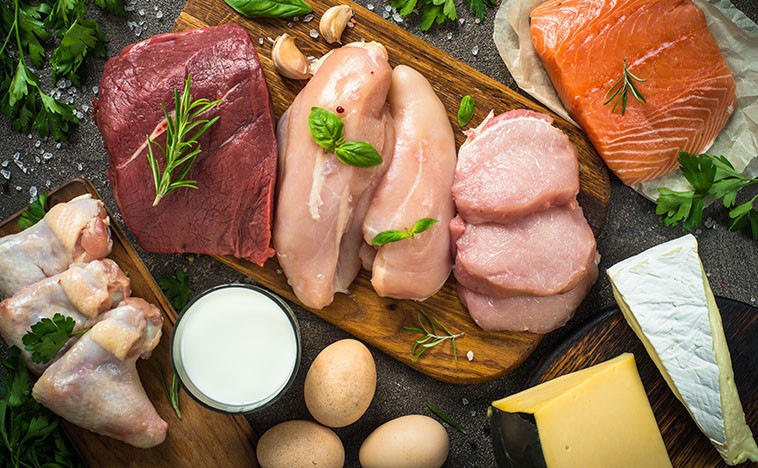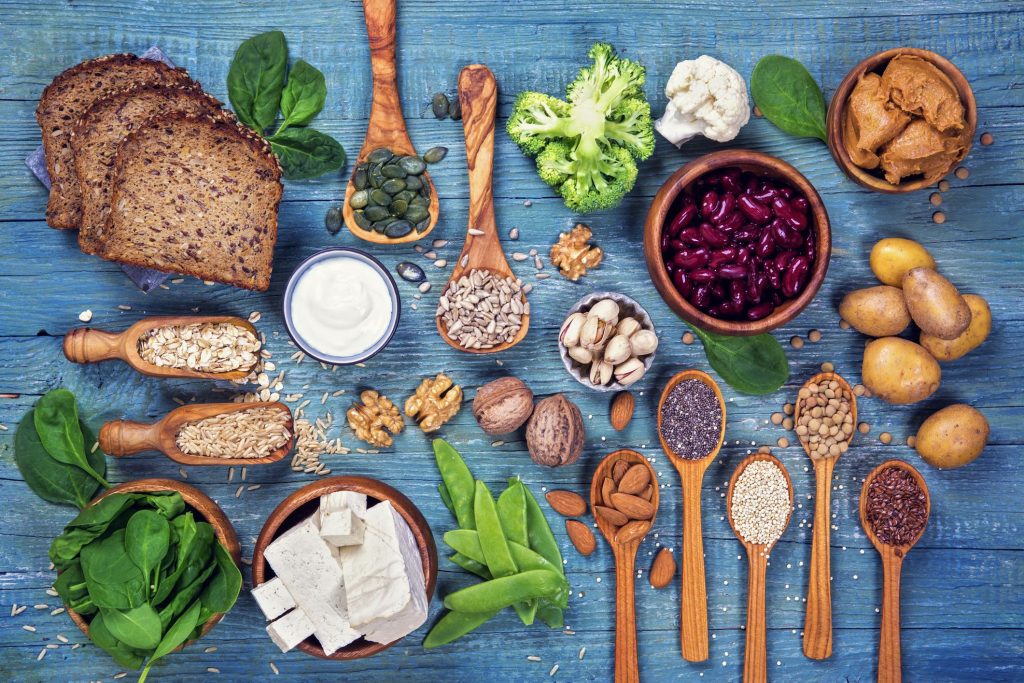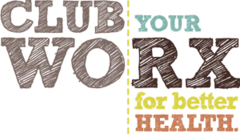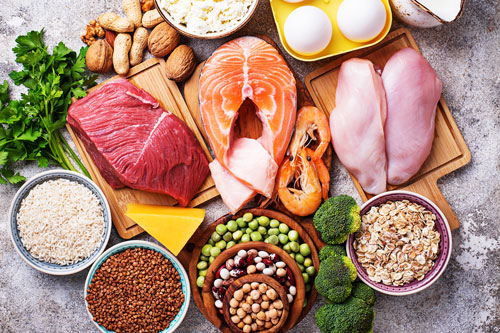This is the fourth post of an seven-part series about the nutrients our body needs to survive and the foods we get those nutrients from. Today the focus is on protein. Protein is often the macronutrient that people increase when they go on a diet to lose weight or when they want to increase their muscle mass. Though higher amounts of protein are needed in both cases, most people increase their protein too much, are getting protein from unhealthy sources, or are consuming too much at once for their body to use properly. Protein is important for many roles in our body, it is also important to space your protein out throughout the day and consume a variety of proteins from both animal and plant sources.
Protein structure
Proteins are made up of long chains of amino acids. Those chains then fold and bend on themselves to make a unique structure which dictates the proteins’ function. There are 20 amino acids; 9 of them are considered essential amino acids, meaning the body cannot make them, they must be eaten in the diet. “Complete proteins” indicate that they have all 9 essential amino acids, while “incomplete proteins” do not have all 9 essential amino acids. Animal sources of protein are complete protein, as are soy and quinoa. Most other plant sources of protein are incomplete, so it is suggested that you eat them in combination to get a complete protein, like rice and beans, or peanut butter and whole wheat bread.
Roles of protein in the body
- Proteins make up our antibodies that help us fight off infections. They also help with building and repair of tissue in case of damage or injury.
- Proteins serve as enzymes to help carry out almost all the chemical reactions that take place in our cells. In fact, about half of the protein you consume in a day gets used for enzymes!
- Proteins act as messengers between cells to help coordinate and carry out our biological processes. They play an important part in hormone regulation, especially during the development of cells during puberty.
- As structural components, proteins provided support and structure for our cells, and on a larger scale, allow our body to move. Our hair, nails and skin are composed primarily of protein.
- Proteins also help with transport and storage of atoms and molecules throughout the body, carrying them where they need to go. For example, our red blood cells contain a protein compound that helps carry the oxygen throughout our body.
Food sources of protein

Animal sources of protein
- Seafood
- Meats and poultry
- Eggs
- Milk and cheese
Plant based sources of protein

- Legumes, which include beans and peas
- Nuts and nut butters
- Seeds
- Soy products (tofu, tempeh, soy milk, edamame)
- Quinoa
- Meat alternative products
- Whole grains
How much, and what, to eat
Though animal sources of protein provide higher amounts of complete protein, including plant-based protein is good for your health. Animal protein often come with saturated fat and can be higher fat in general. Plant based proteins often come with fiber and other nutrients, so they add more than just protein to your diet. Eating a variety of lean protein sources good for your health.
Protein needs are based on weight, how much you exercise and your age. The average person needs about 0.4g/lb of body weight. For a 150 lb person, that comes out to 60g/day. Teenagers, athletes, and elderly people need more, around 0.5-1.0g/lb depending on different factors like types of exercise, injury or illness, weight status, etc. In general, if you are an average, recreational exerciser, you can aim for 0.4-0.7g/lb and you will be getting enough to supply your body with the protein it needs to be healthy as well as repair and build muscles.
It is important to spread your protein intake out throughout the day. The body can only process and use 20-30g of protein at a time. Anything more than that at one meal gets turned into other things the body needs at the time. Be sure to spread your protein intake out throughout the day. Including a protein source at each meal and snack is a good rule of thumb.
So what about protein supplements?
People often ask me if they should include protein supplements in their diet. I never recommended people add protein supplements unless they need to. It is best to get the protein we need from whole foods, as these foods also provide us with other important nutrients. However, if you are having a hard time getting enough protein in your day, supplements can defiantly come in handy. Just be sure to look at how much added sugar is in your protein bar, powder or shake. Go with ones lower in sugar.
If you would like to know your specific recommendations for protein intake, as well as your other macronutrients, be sure to set up an appointment with your local dietitian!
Stay healthy!
Lisa Robinson-Mihiar, RDN, LD
ClubWorx Dietitian
Have a question you want Lisa to answer on the blog? Send your questions and ideas to Lisa at lrobinson (at) clubworx.net


